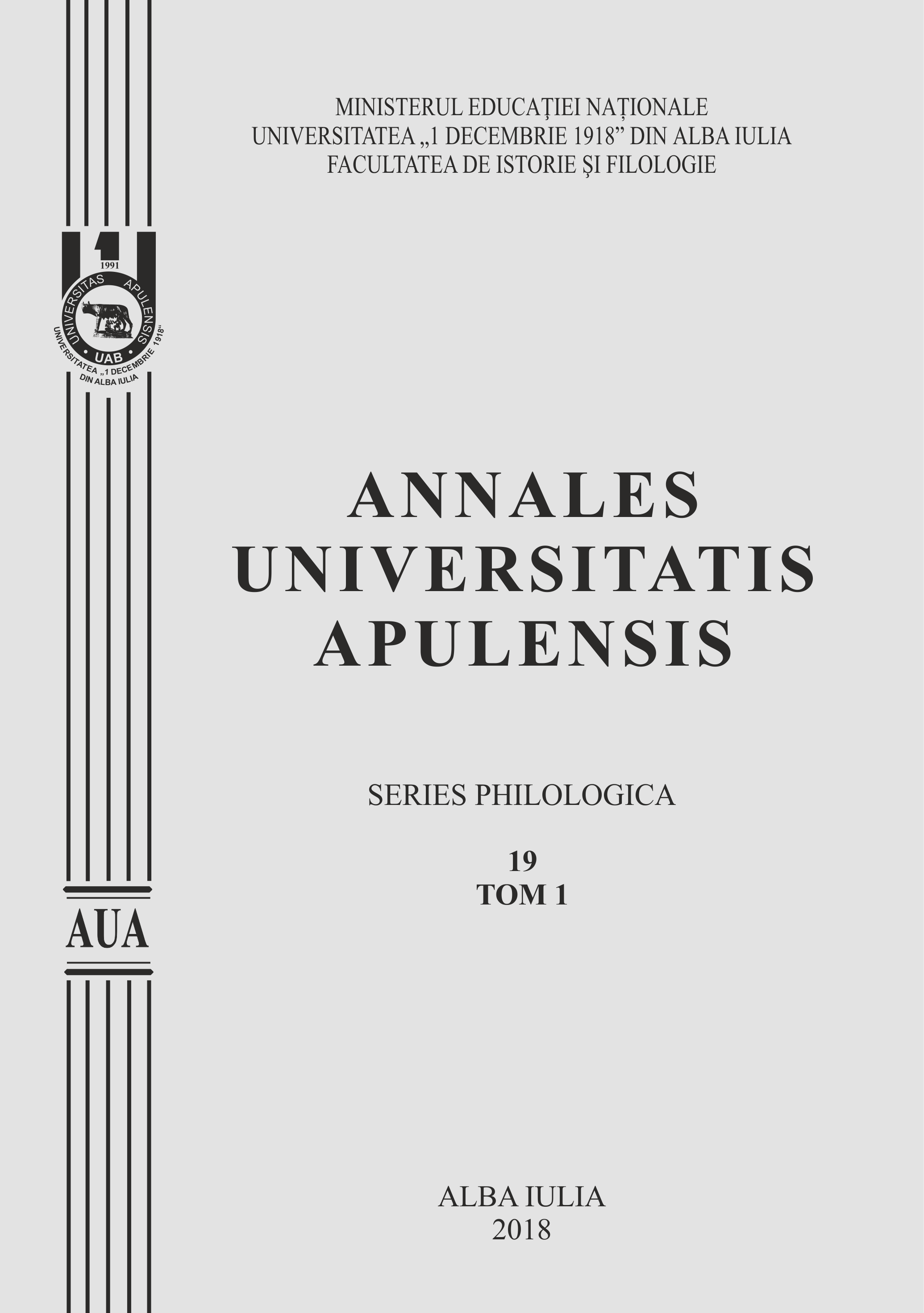CONSTRUCŢIA MEMORIEI CULTURALE ÎN ROMANUL PROVIZORAT DE GABRIELA ADAMEŞTEANU
CONSTRUCTION OF CULTURAL MEMORY IN THE NOVEL PROVIZORAT BY GABRIELA ADAMEŞTEANU
Author(s): ILEANA-LAVINIA GEAMBEISubject(s): Language and Literature Studies, Studies of Literature, Romanian Literature, Theory of Literature
Published by: Universitatea »1 Decembrie 1918« Alba Iulia
Keywords: cultural memory; communism; collective mentality;
Summary/Abstract: Literature is known to have a very important role in cultural dynamics, many of the post-communist novels reflecting the recent past, in the form of its remembrance.As Andreea Mironescu shows, literature is an environment of the memory culture in post-communism, both in East Europe and Romania (http://www.cesindcultura.acad.ro/images/fisiere/rezultate/postdoc/rapoarte%20finale%20de%20cercetare%20stiintifica%20ale%20cercetatorilor%20postdoctorat/lucrari/Mironescu_Andreea.pdf, p. 6). According to Paul Cernat, the novel Provizorat by Gabriela Adameşteanu comes into prominence both as a "great novel of «relief» and a novel of couples in totalitarianism and their impossible intimacy" (cover IV, Gabriela Adameşteanu, Provizorat, second edition, Iaşi, Polirom, 2011).The duplicitous life of the protagonist, Leticia Arcan, with the feeling of permanently lived fear, is the duplicitous life of any Romanian in the communist era. The adulterous love story of Leticia and Sorin represents both the axis of the novel, and an opportunity to rebuild past epochs, especially Communism during Gheorghe-Gheorghiu Dej and Ceausescu. The novel creates and puts forth fictional representations and "possible worlds" of the past, thus influencing its representations at individual and collective level. The novel offers for the generation born after 1990 an alternative image of communism to the historical information in school textbooks, and for previous generations, the novel becomes a collective memory environment, relying on a participatory acceptance that does not necessarily imply nostalgia for the old regime but identification with (fictional) experiences and forms of everyday life in socialism.Starting from these premises, the present work aims to analyze the way in which Gabriel Adameşteanu's novel mediates access to the past, influences the collective images of communism, putting concurrent histories on the stage.
Journal: Annales Universitatis Apulensis. Series Philologica
- Issue Year: 19/2018
- Issue No: 1
- Page Range: 119-126
- Page Count: 7
- Language: Romanian

